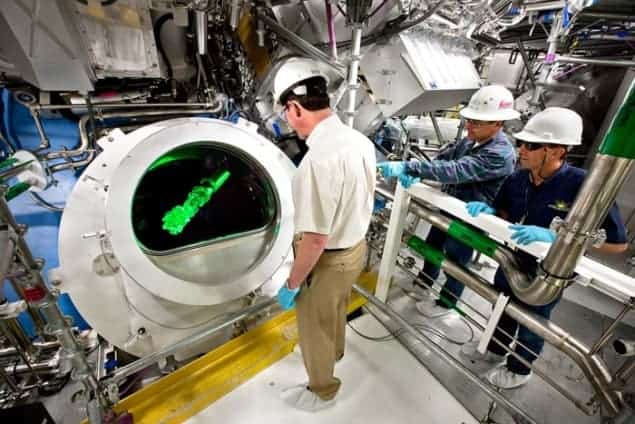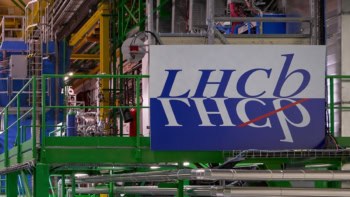
The Lawrence Livermore National Laboratory (LLNL) in the US has begun laying off around 10% of its 6500-strong workforce in preparation for “challenges” in the lab’s 2014 budget, which will start on 1 October. The lab’s redundancy offer gives workers one week of base salary for each year of continuous service, up to a maximum of 26 weeks. As of last Friday, 399 individuals had accepted the lay-off terms.
Significant limitations
The Obama administration’s budget request for 2014 includes about $1.48 bn for the LLNL – a sum that lab director Parney Albright told a Senate subcommittee last month “will significantly limit our ability to utilize the National Ignition Facility and undermine [our nuclear] stewardship programme”. However, even this figure is uncertain, given the political disputes between the Democratic administration and the Republicans, who have a majority in the House of Representatives and a blocking minority in the Senate.
Albright adds that there are still a number of “unknowns” in the 2014 budget request. “It is clear the budget proposal will face an uphill battle in Congress this summer,” he says. “It is our hope that implementing the [redundancy programme] now, rather than waiting for additional details on the 2014 budget, will put the laboratory in a better position to address whatever budget realities we’ll face.” According to lab spokesperson Lynda Seaver, “the voluntary redundancy is available to all employees, though some could be denied due to critical skills”.
Budgeting woes
The lay-offs at LLNL follow more than 550 permanent employees having accepted severance packages last year from the Los Alamos National Laboratory when it faced a reduced budget and little prospect of increases. The LLNL itself offered voluntary redundancies in 2008 but, according to Seaver, did not get “the numbers we had hoped for”. The lab then resorted to compulsory redundancies, which some employees challenged in the courts. Indeed, in late May five lab staff were awarded more than $2.7m when a local jury found that the LLNL had violated a contractual promise that it would lay the workers off only for a “reasonable cause”. The LLNL will reconsider its response to the impending financial situation – which could still include forced redundancies – as soon as it knows its final budget for 2014.
Meanwhile, further budget woes are threatening the Massachusetts Institute of Technology’s Alcator C-Mod fusion project, which faces closure within a year as the US government moves fusion funds from home-grown projects to international collaborations such as ITER. The administration’s proposed 2014 budget includes no funding for C-Mod and its shutdown would lead to 70 staff losing their jobs, leaving only two fusion experiments in the US. The Massachusetts Congressional delegation has called for restoration of funds for the programme, which produces more PhDs in fusion and plasma physics than at any other US institution.



